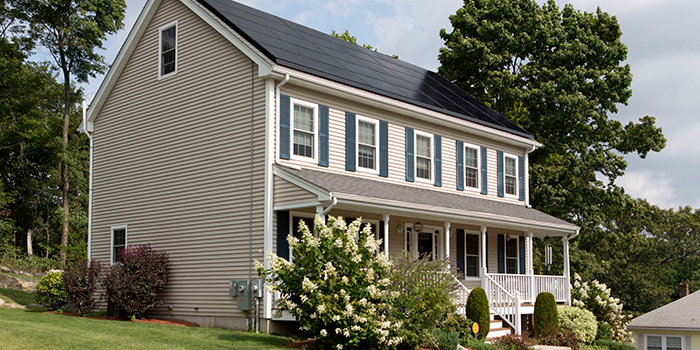
VINYL SIDING TRAVERSE CITY ROOFING
World Class Siding Contractors. Industry Leading People & Service
People all over Northern Michigan are choosing Traverse City Roofing. Why? Because we are committed to excellent work, and amazing customer experiences. Our dedication to quality shows in every aspect of our work.
Our team of roofers are dedicated to making your home or business look better, and be safer. We pledge to leave your home or work looking better than when we showed up. You called for help. And help you shall get.
Traverse City Roofing is here to serve you, our neighbors.
Thank you for trusting in us to take care of your arbor needs,
– Mario and The Team @ TraverseCityRoofing.net
Traverse City Roofing offers affordable and efficient vinyl siding installation services in Traverse City. But before taking on this huge project, it is important for homeowners to do their research and find out everything they need to know about vinyl siding, so that they are aware of the entire process.
Choosing exterior siding for a new or renovated house is not an easy decision. But vinyl siding is perhaps one of the best choices out there—and it is in fact one of the most popular siding materials in the United States—let;s find out why.
How Much Does Vinyl Siding Cost?
Unlike cedar or pine board, vinyl is a durable plastic, and therefore is not prone to rotting or flaking. It is also available in several dozen colors that can even mimic architectural details that were once made from wood, giving the same illusion of wood but adding more durability into the mix.
Installing vinyl siding will cost most homeowners between $6,000 and $15,000 on average. The national average cost is $10,620. Contact Traverse City Roofing today for more specific information.
Vinyl siding typically costs an average of $4 per square foot to install. This makes it the least expensive siding material, second only in installation costs to metal siding.
How Much Does Vinyl Siding Installation Cost?
While the price of vinyl siding installation may vary according to who you are working with, there are other cost factors to be aware of that can affect the cost of a certain project. These things may seem insignificant at first, but they can have an enormous effect on the cost of vinyl siding.
The reason why the price fluctuates is because there are many options that are incorporated into the manufacturing of the material.
For example, the thickness of vinyl can dictate its price. While vinyl usually comes in thickness of .040”, thicker siding such as .052” is more durable and has better fade resistance, and will therefore cost more.
There are also different styles to choose from, ranging from plain to more detailed vinyl. It may imitate wood, stone, or other materials so that it does not just look like vinyl. It all depends on the homeowner’s preferences.
And of course, the layout and size of the house itself will affect the price of vinyl siding installation, with larger houses requiring more material and more labor. Speaking of labor, the installation process can be quite tricky for those who do not have the required experience and knowledge on vinyl siding installation. Hiring a professional will cost more, but it is the better investment in the long run compared to the DIY route, because it means that the vinyl siding can be installed perfectly.
On top of these factors, if the house has existing siding that needs to be removed beforehand, this may cost extra, but at least it will save homeowners the trouble of having to find a place to dispose of it.
Traverse City Roofing can provide property owners with an estimate.
When Should Vinyl Siding Be Replaced?
It is tough to pinpoint the exact time frame on when a vinyl siding would fade. The simple answer is it will take a long time before it needs to be replaced—it is a plastic material after all. If the vinyl siding is cleaned regularly and properly maintained, it will last for decades—and this is being humble about it.
One of the biggest benefits of vinyl siding, other than its clear durability, is that it is very easy to maintain. It is less susceptible to the weather, so homeowners don’t have to worry about it so much. This is what makes the initial investment worth it. A simple washing once or twice a year will keep the vinyl spotless and looking great. It provides maximum value for minimal effort.
Vinyl siding will not warp or rot because it is resistant to moisture. Moisture is actually a problem for a lot of other siding materials. Northern Michigan weather provides a lot of moisture, so it’s nice to have that extra layer of protection that won’t warp or rot.
Another reason why homeowners need to hire a professional company to install their vinyl siding is because durability is affected by the installation. Vinyl expands so it must be installed loosely, but not too loose that the wind can get underneath the thin sheets and lift a panel from the wall. Done correctly, this will allow the vinyl siding to get that maximum lifespan.
Modern vinyl siding has been fortified with new developments that made them stronger and less brittle.
What Goes Under Vinyl Siding?
Vinyl siding can be installed directly over wall sheathing, wood siding, or stucco. Before installing siding, it may be necessary to add furring strips over existing wood siding or stucco.
Additionally, homeowners can also opt to add some energy saving materials to the project. House wrap, for example, is a material that is designed to keep out moisture and reduce drafts while also allowing the walls to breath.
Homeowners may also choose to install fiberglass, cellulose, or foam insulation before adding the vinyl siding.
Is Vinyl Siding A Good Investment?
With its incredible durability that borders on indestructible, vinyl siding is definitely a good investment.
However, it is important to note that vinyl siding is not actually indestructible. Because vinyl siding is low maintenance, this often breeds complacency on the part of the homeowners, and it leads to neglect. Remember that no exterior siding product is the end-all answer to home energy conservation.
Overall, vinyl siding has very few downsides and very solid benefits that make it an excellent investment for all property owners. Vinyl siding also comes in many colors and designs, so they improve the home on an aesthetic level as well. On top of this, vinyl can also be painted, so this type of siding is highly customizable.
One other important thing to take note of is that it is not an appropriate choice for historic preservation because vinyl siding can cause irreversible damage to the brick and stone, just like vinyl windows. So if the project is a historic site, it is not a good idea to have vinyl siding installed.
Does Vinyl Siding Fade?
Vinyl siding can fade, but only because everything fades eventually—even plastic materials. But it will definitely last much longer than just about any other material, and even when it does fade, it will only do so slightly.
If the vinyl starts to fade after years of service, the homeowner can simply repaint them to add spice to the less-than-vibrant color.
Does New Vinyl Siding Increase Home Value?
Installing vinyl siding or re-siding a home can add a significant amount of resale value to the property. According to the National Association of Realtor’s website, Houselogic, the best choices for improving home value are exterior projects, including siding replacement. This seems to apply no matter what material you choose for the siding.
In any case, vinyl siding has proven to be a wise choice for any home. Not only does it help control energy costs, it also adds value to the property. It’s a smart investment, if there ever was one.
Contact Traverse City Roofing today and learn more about vinyl siding installation in Traverse City.

